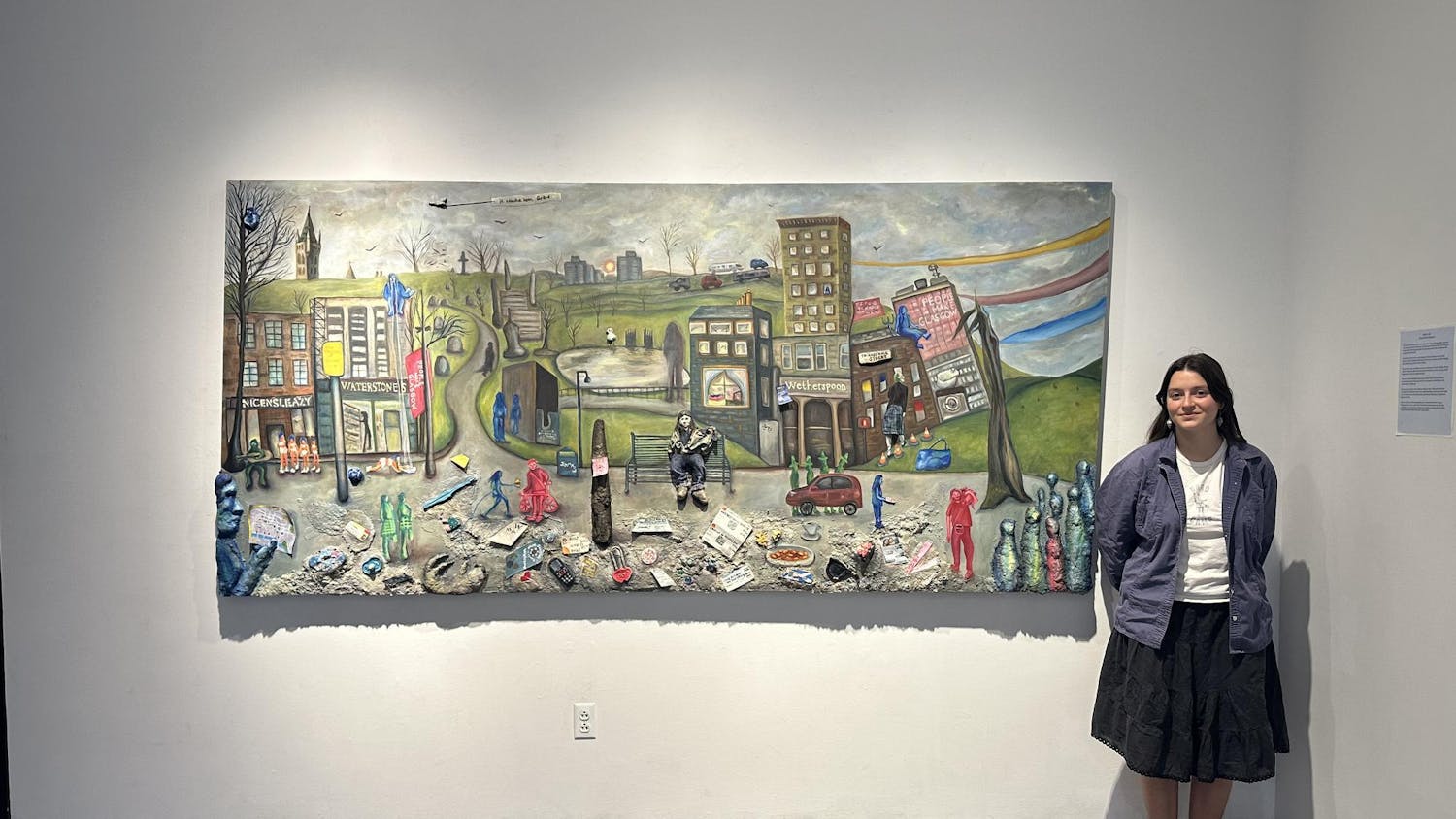“Look what happened when you were dreaming / And then punch yourself in the face.” So begins the eponymous song off “American Dream,” the much-anticipated reunion album by the electronic alternative rock outfit LCD Soundsystem. The lyric reads like a call for reflection in the wake of the six years that have eclipsed since LCD Soundsystem’s initial 2011 break-up — a disbandment defined by an accompanying farewell show at Madison Square Garden. For the alternative crowd, the group’s now-legendary concert, organized by LCD Soundsystem frontman James Murphy emulates The Beatles’ “Let It Be” 1970 rooftop performance in its import. Selling out instantly, the nearly four-hour-long set drew tens of thousands of Converse-clad fans and cemented the band’s synthy, stimulant-ridden sound into rock ‘n’ roll’s canon.
In retrospect, it’s hard not to see it all as a masterfully executed publicity stunt. In 2015, after delighting in the money and surge of popularity brought about by that “final” performance, the band promptly reunited. Murphy is clearly no stranger to this kind of deliberate brand-building. As anthologized in “Meet Me In The Bathroom” — Lizzy Goldman’s recently released oral history of the 2000s rock — Murphy had an illustrious career as lead producer for DFA Records before forming his own musical project in his thirties. That project, LCD Soundsystem, made waves early on with tracks like “Losing My Edge” and “Daft Punk Is Playing at My House.” These songs showcased Murphy’s supreme technicality and his characteristically ironic and referential bent. Yet, as Goodman’s book documents, this rapid success was not achieved without cunning and deceit. Through the evisceration of countless bands’ careers, Murphy established himself as a virtuosic veteran capable of making incredible music and navigating a cutthroat industry. For what it is worth, Murphy may very well be the alt-rock analogue to Kanye West in ego and artistry.
“American Dream” takes Murphy’s musical prowess and self-mythologizing to new heights. Technically the fourth album under the LCD Soundsystem name, the record might as well be a solo one, as the singer-songwriter-producer remains at the helm of almost all of the album’s instrumentation and production. Every track on the album revels in both explicit and implicit references. Perhaps egotistically, Murphy attempts to both emulate talents of and equate his musical chops with departed creative giants like David Bowie and Leonard Cohen.
The LP’s opening song “Oh Baby” echoes the sultry vocals and synths of the ’70s electronic group Suicide, while the lyrics to closing track “Black Screen” play out as a thinly-veiled ode to Bowie’s death. In the hands of basically anyone else, such a move would be setting the stakes unreasonably high. But Murphy capably approaches rock greats, transcending mere imitation for an incredible sound at once new and old.
LCD Soundsystem has always made alternative music that you could actually dance to, full of sharp drum fills and manic synth lines. But “American Dream” takes a decidedly more subdued turn, tending instead towards drawn-out soundscapes and layered textures. Both honoring and slandering the traditional social ideals encapsulated by the album’s title, Murphy avoids tossing barbs at easy targets like political figures and the media. Instead, Murphy looks inward, analyzing his own experiences both living out and failing to realize the American Dream.
On standout track “Tonite,” Murphy’s lyrics continue to grapple with his successes and shortcomings in scrutinizing his and others’ actions over the course of one sad night. In this respect, he triumphs over his contemporary Father John Misty, whose 2017 LP sunk under pretentious generalities. Taken alone, the straightforward lyrics could be read as terrible poetry. But from Murphy’s limited yet evocative register, the words more than compensate for their simplicity.
There are no immediate hits to be found on “American Dream.”The somber and glacial record invites rumination rather than celebration, hitting listeners like a profound “punch to the face” after repeated, focused listening. On the LP, Murphy cements his status as one of alternative’s finest, shining through the static that obscures his personal and creative talents more than ever before.




